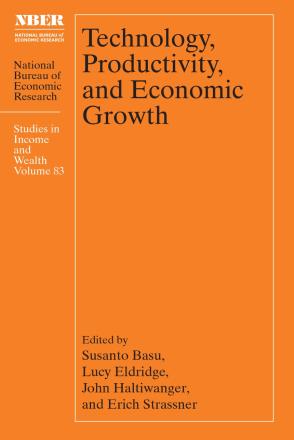Data, Intangible Capital, and Productivity

This paper analyzes how the increased use of data in economies affects productivity. We introduce a framework for measuring data and find that data assets are conceptually encompassed in the Corrado, Hulten, and Sichel (2005, 2009) intangible capital framework. To investigate the overlap between data capital and intangible capital, the paper develops measures of industry-level investments in data for nine European countries. Analysis of the new measures concludes that about 50 percent of intangible capital is essentially data capital. Next, a model of an economy with data capital is used to assess the impact of the increased use of proprietary big data on productivity. We find two primary macroeconomic impacts. First, the greater relative efficiency of data capital boosts labor productivity. Second, the increased use of proprietary big data increases the appropriability of the intangible asset class, which diminishes TFP growth. The greater relative efficiency of data capital is unseen in official data but is estimated to be boosting labor productivity growth by about 0.2 percentage points per year. This is offset by the appropriability effect, however, that may have shaved as much as 0.3 to 0.4 percentage points off recent TFP growth and contributed to its measured slowdown.
-
-
Copy CitationCarol Corrado, Jonathan Haskel, Massimiliano Iommi, Cecilia Jona-Lasinio, and Filippo Bontadini, Technology, Productivity, and Economic Growth (University of Chicago Press, 2024), chap. 7, https://www.nber.org/books-and-chapters/technology-productivity-and-economic-growth/data-intangible-capital-and-productivity.Download Citation


